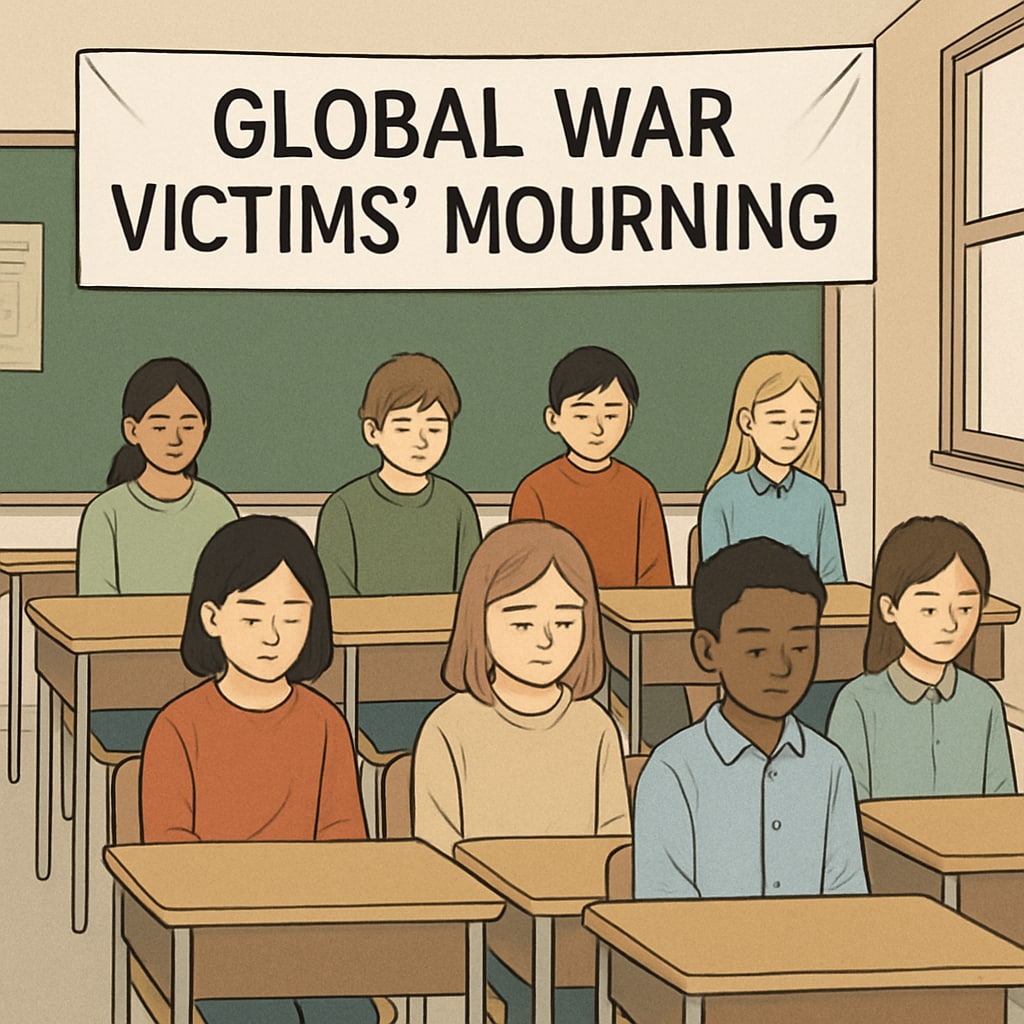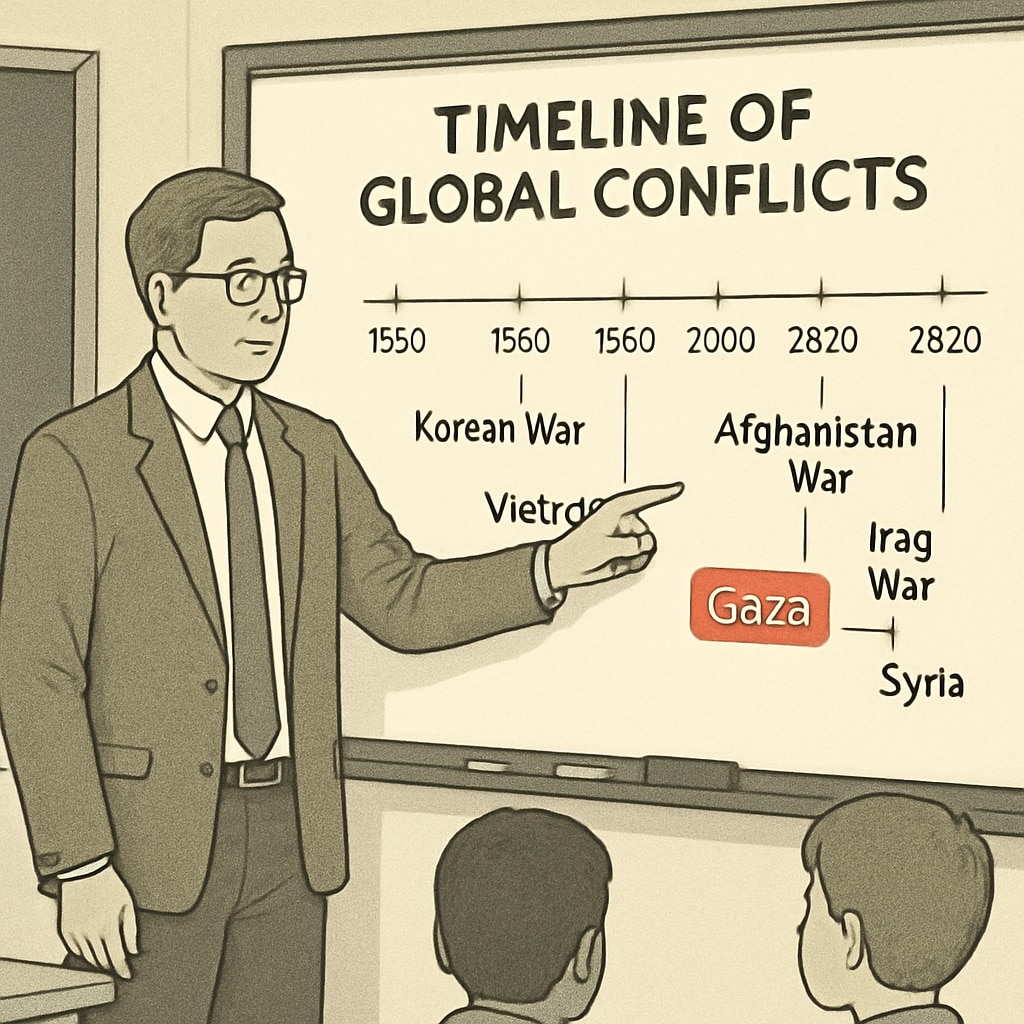When schools choose to transform Gaza-specific mourning events into generalized activities such as “global war victims’ mourning,” they navigate a precarious ethical terrain. This decision, framed as a neutral stance, risks becoming an act of political avoidance rather than a commitment to meaningful education. The interplay between school decision-making, the acknowledgment of ethnic conflicts like genocide, and the avoidance of controversial issues underscores the importance of moral courage and educational responsibility.

Neutrality in Education: A Shield or a Shackle?
Neutrality is often portrayed as a virtue in educational settings, particularly when addressing sensitive topics such as the Gaza crisis, genocide, or war. However, neutrality can sometimes act as a shield against accountability. By broadening Gaza-specific mourning into a general commemoration for global war victims, schools may inadvertently dilute the significance of specific tragedies and their historical contexts.
For example, the Gaza conflict involves complex layers of political, social, and humanitarian issues that deserve focused attention. By generalizing mourning events, schools may sidestep discussions about the root causes of such crises, depriving students of opportunities to critically analyze global injustices. This approach could be seen as an abdication of the educational responsibility to foster informed global citizens.
The Ethics of Avoidance in School Policies
In the face of politically charged topics, schools often opt for generalized approaches to avoid controversy. While this strategy may seem pragmatic, it raises ethical questions about the role of education in addressing global issues like genocide and war. Are schools teaching students to confront uncomfortable truths or merely to avoid them?
Educational institutions have a moral responsibility to address specific crises, such as the Gaza conflict, with honesty and depth. Avoidance through generalization can lead to a superficial understanding of complex issues, failing to equip students with the critical thinking skills needed to engage with global challenges.
For instance, the decision to observe a moment of silence for “all war victims” instead of specifically for Gaza may reflect a reluctance to acknowledge the political dimensions of the crisis. This avoidance not only undermines the educational value of such activities but also risks perpetuating ignorance about systemic issues like ethnic violence and genocide.

Fostering Political Courage in Education
To address these dilemmas, educators must embrace political courage—an ability to confront contentious topics with honesty and integrity. Political courage involves recognizing the importance of teaching specific historical and global events, even when they are controversial. For example, discussing the Gaza crisis in schools could provide students with a deeper understanding of the political, social, and humanitarian aspects of the conflict.
Moreover, fostering political courage can help students develop empathy and a sense of accountability for global issues. By acknowledging the specificities of crises like the Gaza conflict, educators can inspire students to think critically and engage with solutions for a more equitable world. Avoidance through generalization, on the other hand, risks trivializing profound human suffering and undermining the transformative potential of education.
Conclusion: The Path Forward
The decision to generalize Gaza-specific mourning into a broader commemoration for global war victims raises critical questions about the role of education in addressing global crises. While neutrality may seem like a safe choice, it can often mask avoidance of responsibility. Schools must recognize the importance of addressing specific issues with depth and honesty, fostering political courage and critical thinking in students.
Ultimately, education is not merely about imparting knowledge but about shaping informed, empathetic individuals who can navigate the complexities of the world. By embracing moral courage and educational integrity, schools can ensure that moments of mourning are not just acts of remembrance but also opportunities for meaningful learning and growth.
Readability guidance: The article uses clear language, short paragraphs, and transitional phrases to ensure accessibility. Lists and images are incorporated to enhance engagement and understanding. Passive voice is minimized, and active voice is prioritized for clarity.


